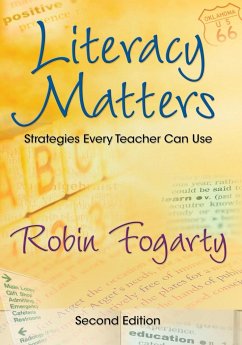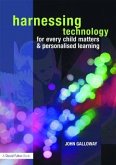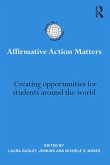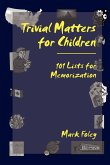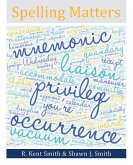29,99 €
inkl. MwSt.
Versandfertig in 1-2 Wochen

15 °P sammeln
- Broschiertes Buch
- Merkliste
- Auf die Merkliste
- Bewerten Bewerten
- Teilen
- Produkt teilen
- Produkterinnerung
- Produkterinnerung
The author defines 15 literacy approaches, with research and best practices associated with each strategy, to teach literacy and comprehension across all grade levels and content areas.
Andere Kunden interessierten sich auch für
![Tourism Matters Tourism Matters]() David SpurlingTourism Matters13,99 €
David SpurlingTourism Matters13,99 €![Early Childhood Matters Early Childhood Matters]() Early Childhood Matters65,99 €
Early Childhood Matters65,99 €![Harnessing Technology for Every Child Matters and Personalised Learning Harnessing Technology for Every Child Matters and Personalised Learning]() John GallowayHarnessing Technology for Every Child Matters and Personalised Learning14,99 €
John GallowayHarnessing Technology for Every Child Matters and Personalised Learning14,99 €![Affirmative Action Matters Affirmative Action Matters]() Affirmative Action Matters80,99 €
Affirmative Action Matters80,99 €![Trivial Matters for Children Trivial Matters for Children]() Mark FoleyTrivial Matters for Children16,99 €
Mark FoleyTrivial Matters for Children16,99 €![Understanding Mathematics and Science Matters Understanding Mathematics and Science Matters]() Understanding Mathematics and Science Matters81,99 €
Understanding Mathematics and Science Matters81,99 €![Spelling Matters Spelling Matters]() R. Kent SmithSpelling Matters18,99 €
R. Kent SmithSpelling Matters18,99 €-
-
-
The author defines 15 literacy approaches, with research and best practices associated with each strategy, to teach literacy and comprehension across all grade levels and content areas.
Hinweis: Dieser Artikel kann nur an eine deutsche Lieferadresse ausgeliefert werden.
Hinweis: Dieser Artikel kann nur an eine deutsche Lieferadresse ausgeliefert werden.
Produktdetails
- Produktdetails
- Verlag: Corwin
- 2. Auflage
- Seitenzahl: 106
- Erscheinungstermin: 18. Oktober 2006
- Englisch
- Abmessung: 254mm x 178mm x 6mm
- Gewicht: 217g
- ISBN-13: 9781412938914
- ISBN-10: 1412938910
- Artikelnr.: 21232698
- Herstellerkennzeichnung
- Libri GmbH
- Europaallee 1
- 36244 Bad Hersfeld
- gpsr@libri.de
- Verlag: Corwin
- 2. Auflage
- Seitenzahl: 106
- Erscheinungstermin: 18. Oktober 2006
- Englisch
- Abmessung: 254mm x 178mm x 6mm
- Gewicht: 217g
- ISBN-13: 9781412938914
- ISBN-10: 1412938910
- Artikelnr.: 21232698
- Herstellerkennzeichnung
- Libri GmbH
- Europaallee 1
- 36244 Bad Hersfeld
- gpsr@libri.de
Robin Fogarty is President of RFA: A Robin Fogarty Company, a Chicago-based, minority-owned, educational publishing/consulting company. Robin received her doctorate in curriculum and human resource development from Loyola University of Chicago. A leading proponent of the thoughtful classroom, Robin has trained educators throughout the world in curriculum, instruction and assessment strategies. She has taught at all levels, from kindergarten to college, served as an administrator, and consulted with state departments and ministries of education in the United States, Puerto Rico, Russia, Canada, Australia, New Zealand, Germany, Great Britain, Singapore, South Korea, the Netherlands, the Kingdom of Bahrain and Saudi Arabia. Robin has published articles in Educational Leadership, Phi Delta Kappan, The Journal of Staff Development and The Middle School Lournal. She is the author of numerous publications, including Brain-Compatible Classrooms, Literacy Matters, Ten Things New Teachers Need, How to Integrate the Curricula, The Adult Learner, A Look at Transfer, Close the Achievement Gap, Twelve Brain Principles, Nine Best Practices, and From Staff Room to Classroom: Planning and Coaching Professional Learning, How to Teach Thinking Skills Within the Common Core: 7 Key Student Proficiencies of the New National Standards, Invite! Excite! Ignite! 13 Principles for Teaching, Learning and Leading K-12 classrooms Robin received her Bachelor of Arts in Early Childhood Education at SUNY, Potsdam, NY, and her Masters in Instructional Strategies from National Louis University in Evanston, IL. She is known as the teachers' teacher and has mentored numerous colleagues in the art and science of working with the adult learner. She brings a wealth of knowledge and passion to all endeavors, has a wealth of knowledge in the field and conducts highly interactive PD sessions.
Dedication
Acknowledgements
Introduction
1. Learn to Learn With Metacognitive Reflections
2. Interact With Seven Strategies to Comprehend (Phantom Skill)
3. Tap Into Prior Knowledge to Support Schema Theory
4. Extend Reading to Encourage Flexible Reading
5. Research the Principles of the Brain and Learning
6. Analyze Words to Foster Fluency
7. Collaborate With Cooperative Learning Groups to Engage Learners
8. You-Are-a-Reader Attitude Matters
9. Mediate With Early Intervention Strategies
10. Appeal to Parents/Guardians Gets Them Involved
11. Teach Vocabulary by Building Background Knowledge (Dolch List)
12. Tune-in to Technology to Impact Literacy
13. Enter Literacy With a Multiple Intelligences Approach
14. Read-Aloud, Read-Along, Read-Appropriately Practices Foster Flexible
Readers
15. Strategize Reading With Guided Reading Activities
References and Bibliography
Acknowledgements
Introduction
1. Learn to Learn With Metacognitive Reflections
2. Interact With Seven Strategies to Comprehend (Phantom Skill)
3. Tap Into Prior Knowledge to Support Schema Theory
4. Extend Reading to Encourage Flexible Reading
5. Research the Principles of the Brain and Learning
6. Analyze Words to Foster Fluency
7. Collaborate With Cooperative Learning Groups to Engage Learners
8. You-Are-a-Reader Attitude Matters
9. Mediate With Early Intervention Strategies
10. Appeal to Parents/Guardians Gets Them Involved
11. Teach Vocabulary by Building Background Knowledge (Dolch List)
12. Tune-in to Technology to Impact Literacy
13. Enter Literacy With a Multiple Intelligences Approach
14. Read-Aloud, Read-Along, Read-Appropriately Practices Foster Flexible
Readers
15. Strategize Reading With Guided Reading Activities
References and Bibliography
Dedication
Acknowledgements
Introduction
1. Learn to Learn With Metacognitive Reflections
2. Interact With Seven Strategies to Comprehend (Phantom Skill)
3. Tap Into Prior Knowledge to Support Schema Theory
4. Extend Reading to Encourage Flexible Reading
5. Research the Principles of the Brain and Learning
6. Analyze Words to Foster Fluency
7. Collaborate With Cooperative Learning Groups to Engage Learners
8. You-Are-a-Reader Attitude Matters
9. Mediate With Early Intervention Strategies
10. Appeal to Parents/Guardians Gets Them Involved
11. Teach Vocabulary by Building Background Knowledge (Dolch List)
12. Tune-in to Technology to Impact Literacy
13. Enter Literacy With a Multiple Intelligences Approach
14. Read-Aloud, Read-Along, Read-Appropriately Practices Foster Flexible
Readers
15. Strategize Reading With Guided Reading Activities
References and Bibliography
Acknowledgements
Introduction
1. Learn to Learn With Metacognitive Reflections
2. Interact With Seven Strategies to Comprehend (Phantom Skill)
3. Tap Into Prior Knowledge to Support Schema Theory
4. Extend Reading to Encourage Flexible Reading
5. Research the Principles of the Brain and Learning
6. Analyze Words to Foster Fluency
7. Collaborate With Cooperative Learning Groups to Engage Learners
8. You-Are-a-Reader Attitude Matters
9. Mediate With Early Intervention Strategies
10. Appeal to Parents/Guardians Gets Them Involved
11. Teach Vocabulary by Building Background Knowledge (Dolch List)
12. Tune-in to Technology to Impact Literacy
13. Enter Literacy With a Multiple Intelligences Approach
14. Read-Aloud, Read-Along, Read-Appropriately Practices Foster Flexible
Readers
15. Strategize Reading With Guided Reading Activities
References and Bibliography
